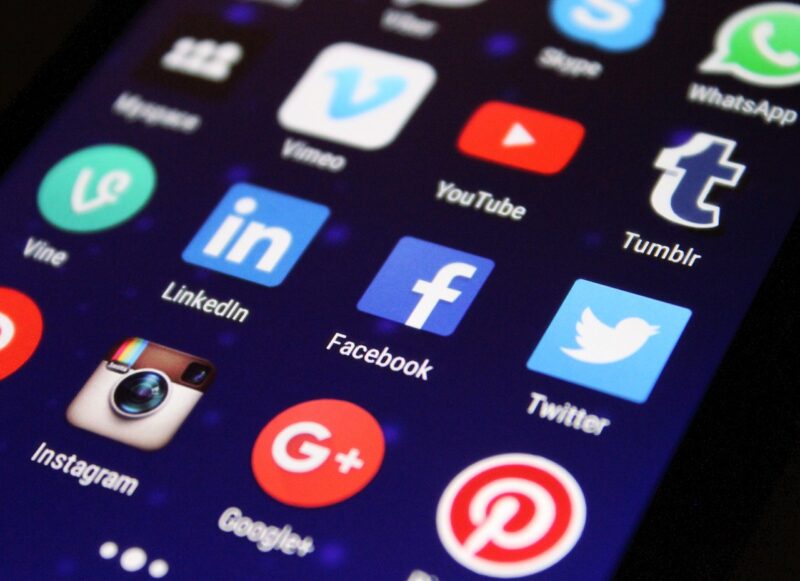The Impact of Social Media on Modern Relationships: A Closer Look
November 18, 2024

Social media has irrevocably changed the landscape of modern relationships. As communication has moved into the digital realm, the way we connect, communicate, and build relationships has transformed in both positive and negative ways. In this article, we’ll explore the impact of social media on romantic relationships, friendships, and familial connections, delving into the intricacies that shape modern interaction.
1. The Evolution of Communication
Historically, communication between individuals required physical presence or at least a written form of correspondence. With the advent of telephones and eventually the internet, the paradigms shifted. Social media, defined as platforms that enable users to create and share content, has laid the groundwork for a new era of interaction.
1.1 Instant Communication
With platforms such as Facebook, Twitter, Instagram, and Snapchat, individuals can connect with others in real-time, bridging geographical divides. This instant access promotes immediacy but also imposes expectations:
- Expectations of Availability: Unlike traditional forms of communication, being online often leads to an expectation of instant replies. The pressure to be constantly accessible can create stress in relationships.
- Reduced Personal Connection: Face-to-face interactions, full of non-verbal cues, are often reduced to abbreviated conversations through text, emojis, and memes.
Understanding these dynamics is crucial as relationships evolve in the digital age.
2. Social Media’s Role in Romantic Relationships
One of the most discussed aspects of social media’s influence lies within romantic relationships.
2.1 Building Connections
Social media platforms can facilitate initial connections between individuals. Couples often meet through mutual friends, social events, or even dating applications integrated with social networks.
The platforms provide:
- Shared Experiences: Couples can share their lives with each other and with a broader audience, building a narrative that engages friends and followers.
- Increased Transparency: Social media can foster a sense of openness, where partners share their lives and communicate their needs or boundaries publicly.
However, the dynamics shift dramatically when discussing the darker side of social media in romantic relationships.
2.2 Jealousy and Trust Issues
The visibility of social media can lead to misunderstandings and insecurities:
- Comparisons: Viewing other couples’ curated social media presence can lead to unhealthy comparisons and feelings of inadequacy within one’s own relationship.
- Privacy Concerns: The sharing of information can lead to disagreements on privacy versus visibility, creating tension between partners.
Addressing these challenges requires open communication and a mutual understanding of how to navigate social media’s complexities in a relationship.
3. Challenges in Friendships Due to Social Media
Friendships, too, have been significantly impacted by social media. Platforms have both enriched and complicated these connections.
3.1 Expanding Social Circles
Social media allows individuals to maintain connections geographically distant, fostering friendships that may not have been possible otherwise:
- Broader Networks: Users can connect with like-minded individuals or reconnect with old friends, facilitating networking opportunities and community engagement.
- Support Systems: Online friendships often serve as valuable support systems during difficult times, allowing for empathy and shared experiences over long distances.
3.2 The Impact of Online Personas
However, the pressure to curate an ideal online persona can create anxiety:
- Superficiality: Friendships may feel more superficial as individuals present only a polished version of their lives, leading to less authenticity in relationships.
- Social FOMO (Fear of Missing Out): Seeing friends from afar can exacerbate feelings of exclusion or jealousy, leading to stress and potential conflict within the friendship.
Navigating friendships in the age of social media also involves being aware of these pressures and understanding their impact on mental well-being.
4. Family Relationships in the Digital Age
Families have been profoundly affected by social media dynamics; both beneficial and detrimental influences exist.
4.1 Connections Across Generations
Social media allows families to stay connected, sharing milestones and everyday moments strengthening familial bonds:
- Shared Family Experiences: Platforms like Facebook offer family groups where relatives can share updates, photos, and family memories efficiently.
- Global Connectivity: Families spread across distances can maintain close relationships, allowing for real-time interactions and updates on life events.
4.2 Disconnect and Overexposure
On the flip side, constant exposure to each other’s lives can lead to unexpected pressures:
- Overexposure: Sharing every detail can create an environment where individuals feel the need to perform for their family, leading to stress or conflict.
- Neglecting Real Interactions: Families may prioritize online communication at the expense of in-person interactions, leading to isolation or misunderstood intentions.
Being mindful of social media’s influence on familial relationships requires a balance between online connection and face-to-face interaction.
5. Strategies for Healthy Relationships in a Social Media World
As we navigate the impact of social media on relationships, it’s essential to adopt strategies that foster healthy interactions:
5.1 Set Boundaries
Establish some ground rules around social media usage and sharing, ensuring all parties feel comfortable and respected.
5.2 Prioritize Face-to-Face Interaction
Make a point to engage in offline activities and check in with loved ones in person regularly.
5.3 Foster Open Communication
Utilize social media to enhance communication rather than replace it. Discuss feelings about social media openly with partners, friends, or family.
5.4 Be Mindful of Comparisons
Recognize that social media is often a highlight reel. Stay aware of your feelings and avoid unhealthy comparisons with others’ online personas.
By implementing these strategies, individuals can cultivate relationships that thrive in the digital age, remaining strong and authentic.
Conclusion
Social media has transformed modern relationships in complex ways. While it facilitates bonding and connection, it also introduces challenges like jealousy, misunderstandings, and overexposure. By understanding these dynamics and adopting healthy practices, we can enjoy the benefits of social media while nurturing our relationships in a genuine and connected manner. Embracing both online and offline interactions allows us to create robust bonds that withstand the pressures of the digital world.






